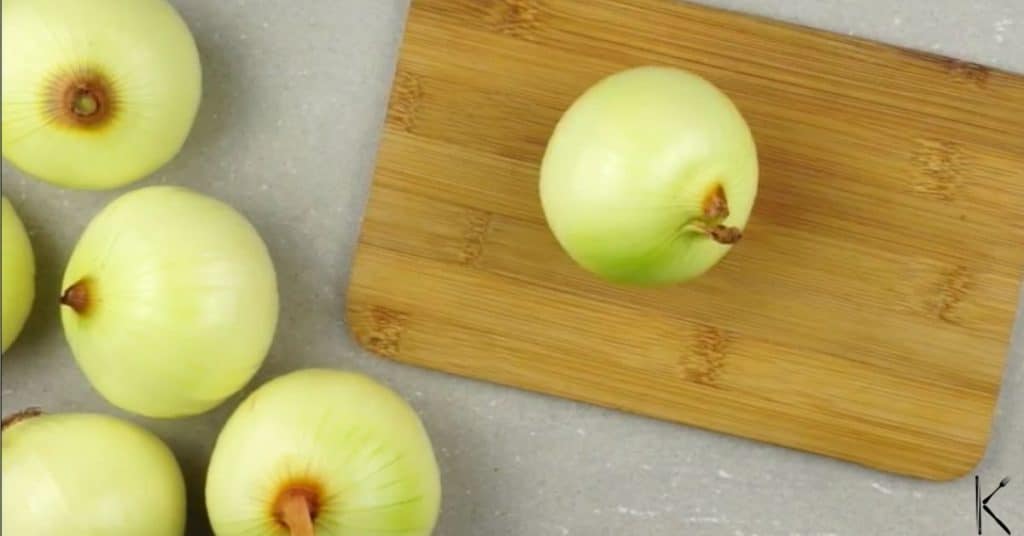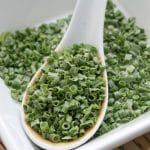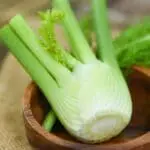Key points:
- For flavor, use shallots, leeks, green onions, or chives; try celery or fennel for texture.
- Dry substitutes include onion powder, onion flakes, and asafoetida powder. Consider the dish’s purpose before choosing a substitute and adjust the amounts accordingly.
- Various onions, such as yellow, white, and red, have distinct flavors and uses, while related options like shallots and scallions provide milder alternatives.
- Take allergies into account and explore combinations to achieve the desired taste and texture in your recipes.
Whether it’s breakfast, lunch, or dinner, onions add a burst of delicious flavor to cooked and raw dishes of all kinds. Used worldwide, they can be prepared in a variety of ways from pickling and deep-frying, to sauteing and roasting.
If onions are a staple in your cooking, you might wonder if it is even possible to make a dish taste good without them. Whether you’ve run out of onions mid-cooking or have an allergy that requires you to avoid them, we’ve got a great list of onion substitutes that will bring just as much punch to your cooking.
What to Consider When Choosing an Onion Alternative
When deciding which onion substitute will be best for your dish you need to consider the initial purpose of the onion in that recipe. This can include:
Texture
Raw onions add crunch in salads, salsa’s, and sandwiches.
Flavor
Onions create a rich flavor base for soups, stews, and stocks. Sautéed onions add depth and complexity to roast beef and sauces. Onions are also used to bring a sweet note to some recipes.
Heat
Raw and pickled onions can be used to bring a bold punch of flavor.
Color
Red, green, and white onions can be used as a garnish or main ingredient to bring pops of color to salads and salsas.
Using a replacement in your recipe may compromise on some of these factors. You may get the same flavor, but miss out on the texture or bulk that onion brings to the recipe. By using other vegetables you may get the texture and bulk, but not the strength of flavor.
Consider using a combination of ingredients to bring both the flavor and texture you are looking for. If a recipe calls for one onion, you can substitute it with a tablespoon of onion powder for flavor, plus a cup of chopped celery to bring the texture.
Best Fresh Onion Substitutes
1. Shallots
Shallots look like small onions and have a very similar, yet slightly milder flavor. In some cooked recipes, you may not even notice the difference. Shallots are great for soups, sautés, or risottos. They are not suitable for people who are allergic to onions.
Since they are so much smaller, you will need to use more shallots to equal one onion.
Best for: Any recipe that requires onions including soups, salad, stew, risotto, stir fry, tarts, omelets, sandwiches, roast vegetables, meat dishes, and sauces.
2. Leeks
Leeks have a mild and sophisticated flavor reminiscent of a cross between garlic and onion. To substitute onions in a cooked dish, slice leeks thinly and saute them.
Best for: Soups, stews, sauces, stock, savory tarts, vegetable dishes, and quiche.
3. Green Onion
Green onions, also referred to as scallions, can be used raw or cooked. They have a mild onion flavor. Since they are much smaller than onions, you will need to use quite a few to get the same punch of flavor. They make great garnishes for salads in their raw form.
Best for: Soups, salad, omelets, stews, stir fry, sauces, vegetable dishes, and quiche.
4. Chives
Chives are best used raw and fresh. These long slender green leaves are mostly used as a garnish to add a pop of color and slight notes of onion flavor.
Best for: Garnishing eggs, potatoes, soups, omelets, sandwiches, and mayonnaise-based dressings.
Best Onion Substitutes for Allergies
5. Fennel
Fennel can be used raw or cooked. It has a strong licorice flavor when it is raw. This can be great to add to salads for a crunchy replacement for onion. When cooked, the texture becomes similar to that of cooked onions and the flavor is mild. It is a perfect alternative for people with onion allergies.
Best for: Salads, soups, stews, vegetable dishes, savory tarts.
6. Celery
Although celery doesn’t taste at all like onion, it has a similar texture. When using it as an onion replacement, increase the use of other spices or dried onion products to infuse some extra flavor.
Celery can be used raw in salads to bring a great crunch. When sauteed it softens but still has a firm texture. It can also be cooked down completely for soups and stocks.
Best for: Salad, soups, stews, stock, sauces, and stir fry.
Best Dry Onion Substitutes for Flavor
7. Onion Powder
Onion powder is a handy and long-lasting item to have in your pantry. A small amount will go a long way in adding flavor to your dish. Although it won’t give your dish body or texture, if flavor is what you are after, this should be your go-to. Read on to calculate the correct substitution measure for your recipe.
Best for: Soups, stews, sauces, chili, meat dishes, and meat rubs.
See more: What can you substitute for onion powder?
8. Onion Flakes
Dried onion flakes are best used as a substitute in liquid-based dishes where they can rehydrate during cooking.
Best for: Casseroles, chili, soup, sauces, and stews.
9. Asafoetida Powder
Asafoetida powder is also sometimes referred to as hing. It is well known in Indian cuisine and adds an onion and garlic flavor to dishes. The raw powder is very pungent and needs to be sauteed in a cooking fat to mellow out the odor and flavor.
Start with a small amount sauteed with 1 to 2 tablespoons of oil. After a minute or two on the heat, start adding your other ingredients to the pan for cooking.
Best for: Curries, soups, stews, meat and vegetable dishes.
Onion Substitution Ratios
In general, 1 medium onion equals approximately 1 cup of chopped onion. A large onion will equal 1 ½ to 2 cups of chopped onions. When replacing onion with alternative cooked ingredients, use the following guidelines and adjust to taste.
Replace one medium raw onion (or one cup finely chopped onion) with one of these options:
- 6 small shallots, 2 large shallots, or four medium shallots
- 1 large leek
- 6 to 8 medium scallions
- 2 to 3 medium celery stalks
- 1 fennel bulb (1 to 1 ½ cups chopped)
Substitute chopped onions with onion powder or dried onion flakes using the following measures:
- Replace a small onion or 1/3 cup of chopped onion with one teaspoon of onion powder or 1 tablespoon of dried onion flakes.
- Replace a medium onion or 1 cup of chopped onion with 1 tablespoon of onion powder or 3 tablespoons of dried onion flakes.
- Replace a large onion or 1 ½ cups of chopped onion with 1 ½ tablespoons of onion powder or 4 ½ tablespoons of dried onion flakes.
Types of Onions
The most common types of large onions are yellow onion, white onion, and red onion. Yellow onions are generally used as a flavor base in dishes. They are mellow when cooked and have both sweet and savory notes. They provide a full-bodied flavor to soups, stews, and other cooked dishes.
White onions are crispy with a sharp flavor. Red onions have a deep purple color that adds color to dishes. They are often used raw in salads or in salsas.
Raw onions have a very assertive flavor which can be overpowering. Cooking them brings out the sweetness and tames their acidic punch.
Shallots, garlic, leeks, scallions, and chives are closely related to onions. They bring a more subtle flavor to dishes. Since they are part of the onion family, they make perfect substitutes from a flavor perspective.
However, if you need to avoid onions due to a food allergy or intolerance, you may be best off avoiding these foods as well. There are other ways to add a great punch of onion flavor without risking your health.
FAQs
Yes, the entire scallion is edible. The green leaves have a mild flavor and are generally used as garnish. The white part has a sharper taste and is best cooked.
Replace the onion-garlic condiment in your cooking with onion- and garlic-infused oil. This will bring a subtle flavor without being overpowering or bothering those with intolerances.
Yes, you can use spring onions finely chopped in raw and cooked dishes.
You can substitute 1 cup of onion with 1 cup of shallots or leeks, or you can use 1 cup of finely chopped scallions (green onions) along with a small amount of garlic or onion powder to mimic the flavor of onion in your recipe. Each option will provide a similar onion-like taste and can be used in various savory dishes.
Conclusion
Onions bring flavor, texture, and color to many dishes. Regardless of what your reason is for skipping the onions, there is an array of alternatives to choose from to bring the right balance to your dish.
Determine the main purpose of the substitute and then choose the most appropriate option. You can even combine a few onion substitutes to bring an extra depth of flavor and great texture to your dish.
Up next: Can You Freeze Onions?









